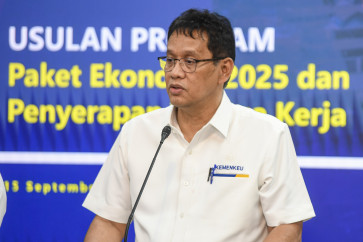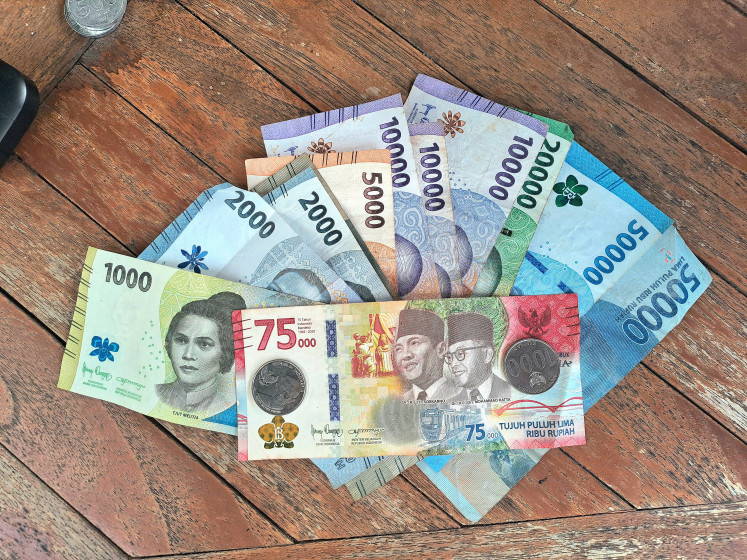Popular Reads
Top Results
Can't find what you're looking for?
View all search resultsPopular Reads
Top Results
Can't find what you're looking for?
View all search resultsVillages set up regulations to reduce plastic waste
Several villages in Bali have agreed to jointly manage the mountains of plastic-filled waste cluttering the island that could destroy rice fields and farms by issuing an awig awig (village customary law) against dumping waste in public spaces
Change text size
Gift Premium Articles
to Anyone
S
everal villages in Bali have agreed to jointly manage the mountains of plastic-filled waste cluttering the island that could destroy rice fields and farms by issuing an awig awig (village customary law) against dumping waste in public spaces.
Kerta village in Payangan, a few kilometers from Ubud, launched the Subak Amerta Nadi awig awig to regulate the management of plastic waste as well as organic and inorganic waste in the village.
The village, with a population of 5,500, has been working hard to clean itself of any kind of trash.
Village secretary I Made Darmaja said the awig-awig was originally written in Balinese, “but it has been translated into Indonesian so all villagers, especially the young, will understand the contents.”
Darmaja said garbage was previously littered discarded all over the place, including in rivers, farm fields, residential areas, traditional markets, water sources and even village temples.
“By enforcing a strict regulation, people are expected to follow the rule or pay a fine of Rp 100,000 [US$11] if they are caught discarding trash in a non-designated area in the village,” Darmaja added.
Villagers have erected several billboards announcing the enforcement of the trash awig-awig and designated temple areas, forests, rice fields, public wells, lakes and water sources as areas that should be free from any discarded waste.
I Nyoman Suardana, a resident from Kerta village, said most villagers made a living as farmers.
“Before the enforcement of the regulation, we did not have enough water for our rice fields as garbage was piled up on every corner of our fields as well as the irrigation tunnel,” he said.
The village was also dirty and smelly, leading to various sanitation and health problems, including dengue fever and other tropical diseases, he added.
Purwayu village in Karangasem, East Bali, has had a similar regulation in effect since 1999.
The regulation requires all members of the villages 150 families to divide organic and inorganic waste. The household garbage is later collected by a village garbage bank.
Every month, the village generate 500 kilograms of trash that can be sold for Rp 50 million.
The Bali administration has set itself an ambitious target to free Bali from plastic garbage by the end
of 2013.










